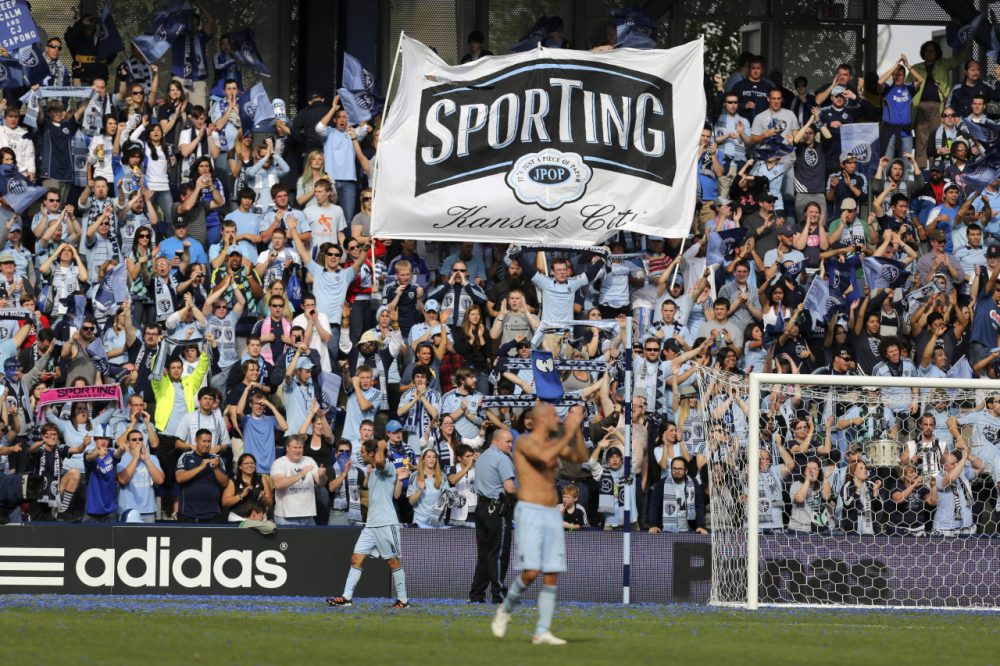Advertisement
To Attract Fans, College Football Teams Take Cues From MLS. Seriously.
Resume
College football fans might be surprised that the SEC has experienced declining attendance, but even more surprised that they’ve turned to another "football" league in America for help.
Ben Cohen of the Wall Street Journal has been covering this unexpected story, and he joined Bill Littlefield on Only A Game.
BL: So, Ben, which league has the SEC turned to for help?
BC: Against all odds, it’s Major League Soccer, which is not one of the big four professional sports leagues and you wouldn’t think of as a place the SEC would look to for advice in anything, let alone attendance, considering SEC stadiums fit 100,000 people and the MLS is lucky to get a quarter of that — and its television ratings are a fraction of the SEC’s. But it turns out that some MLS teams, like the teams in Kansas City and Portland and Seattle, have really mastered the art of the new game experience and engaging fans, especially young fans, in a way that SEC football teams are really struggling to do in recent years.
BL: Well, be a little more specific, if you can, about the exact nature of the SEC’s attendance problems.
What’s really at stake here is the next generation of football fans and donors.
Ben Cohen, WSJ
Florida, for example, is one of the teams that visited Sporting K.C. and Sporting Innovations, the MLS teams’ spinoff consulting firm that focuses on fan engagement and technology. Florida is a school that saw its attendance rate of students who bought tickets drop to 66 percent last year for one of its games. Forty-five percent of students who bought tickets went to games, which means that there were more students at Florida who bought tickets to that game and stayed home than actually bought tickets and went to the Swamp that day to see the Gators.
BL: What have visitors from the SEC and elsewhere learned from teams like Sporting K.C.?
[sidebar title="Some D-III Schools Use Sports To Boost Enrollment" width="330" align="right"]A Forbes reporter explains how his bench-warming son wound up being recruited to play Division III football.[/sidebar]BC: They see what their stadium looks like, for one. Sporting K.C. prides itself on having “neighborhoods” in the stadium, which is a way of separating supporters’ groups by interest and really catering to a wide variety of fans.
They also learn how Sporting K.C. collects data about its fans. They have close to 250,000 profiles of fans, with information as detailed as when, where and how they bought tickets, who they sat with at games, what time they arrived at games, what they bought at games. And this is at a time when a lot of colleges don’t even know how many students are attending games, let alone anything about them when they do go to games.
BL: Do you have any sense of how soon the SEC will make changes to the way it deals with its attendance issues having visited MLS stadia?
BC: I think a lot of schools already are making changes. We did a story last year about Georgia reducing the size of its student section, which would seem blasphemous at a time when the SEC is on a sort of incredible football run. They had won seven straight national championships until last year, and they’re favored to do so again this year, probably.
What’s really at stake here is the next generation of football fans and donors, and what schools fear is that if they can’t connect with students when they’re on campus — when they’re a walk away from going to one of the best football games in the country every Saturday, for free — how are they going to be able to do that when these kids are in their 30s and 40s and 50s and they become the next generation of donors and boosters that support these athletic departments and football teams.
This segment aired on July 19, 2014.